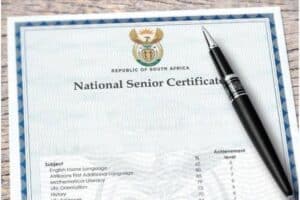Mmusi Maimane's One SA movement is either total madness or inspired genius. It may be both. Sometimes they look the same at first. We'll see by October when the local government election results are in.

When the DA’s first and so far only black leader resigned in 2019, the country wondered if he would join his “hero” Herman Mashaba’s Action SA. Would he start his own political party? Would he become a full-time preacher?
He surprised us by launching the One South Africa “movement”.
It’s certainly not the easiest thing in the world to understand and I had to spend several hours this morning trying to come to grips with it.
That “it’s complicated” label may be one of the biggest hurdles for Maimane and his One SA people to overcome before local government elections take place on October 27.
This is what I could make of it
One SA exists to help independent candidates stand for election in their municipality. Independent candidates are nothing new, but the innovation Maimane would like to popularise is the idea that independent candidates can club together as an “association” within their municipality. They won’t have a political party and can’t have an impact on other municipalities, but they will get the same proportional representation benefits the bigger political parties have enjoyed to date, which I’ll explain more below.
One SA wants residents of their municipality to call together “key influencers and community leaders to form a residents’ steering committee”. They will then need to decide on some kind of name, such as “The Ceres Residents’ Association” or “The Mookgophong Meerkats”. It can be whatever they want.
This must apparently happen at a “municipal stakeholders meeting” that will bring together the local business chamber, farmers’ union, ratepayers’ association, parents’ associations and faith-based organisations, along with whoever else wants to be there, apparently.
This hodgepodge group’s steering committee will then choose their name.
All of this is apparently allowed by the Electoral Commission Act and means independents now stand the chance to be elected not only as ward councillors but also as proportional representation (PR) councillors for the first time.
For those who don’t know or can’t recall the great excitement of the 2016 elections, PR councillors are chosen in local government elections from the second ballot paper that voters receive on voting day.
The first ballot is to pick your named candidate who will become your ward councillor. That’s a winner-takes-all contest.
The second ballot used to just be full of political party names and their logos. By voting for your chosen party, you were handing the power to choose the councillor to that party, provided they received a big enough share of the overall vote to qualify for one or more seats.
PR power
Half the councillors in our municipalities are there through this system of proportional representation. Their seats are owned by their respective parties. They can be replaced by their parties more or less at a whim. This is unlike in the wards, where if a councillor dies, resigns or is fired, a by-election must be held and the party who won the ward then stands to lose their council seat.
That happened to the DA in Johannesburg earlier this month in three wards.
To put the importance of the PR seats in perspective, in the City of Johannesburg the EFF received enough PR votes in 2016 to send 30 councillors to the city council. Those 30 councillors in their red overalls were the kingmakers who handed the mayorship to the DA’s Herman Mashaba.
Despite all their voting support (with more than 11% of the total seats in council), the EFF never won a single ward.
In the next election, Maimane is telling us, independent candidates will now also appear on PR lists so that they also get to benefit from the all-important proportional vote. Up till now, independents would have had to win their ward or leave – as The Weakest Link used to tell us – with nothing.
So this is probably all a bit fairer and could help to dilute the power of the big parties, especially if voters are angry at them and want to send a message. Anything with the backing of ratepayers’ associations and business chambers is also likely to be a force for positive change.
The result for One SA, though, will probably always be a bit of conceptual minefield: these independents with little in common will become part of a nominal group so that they can proportionally represent a group according to their own personal attributes, not the group’s.
And if all of this sounds a bit complicated, you’re probably not alone, which is why One SA has said it will be working with each of these associations to register with the Independent Electoral Commission.
They’ll also help them to develop and roll out their candidate nominations; municipal and ward voter profiles; campaign strategies and plans; registration campaigns; and municipal and ward campaign teams.
There will be days, I’m sure, when the people at One SA will feel like they’re trying to herd cats.
But they seem to think this could be the answer to South Africa’s chronic problems of political cynicism. These civic- and duty-minded independents will deliver us from the endless evil mess of consequence-free corruption, bankrupted municipalities and laughable service delivery.
Maybe.
It could also just leave us with even more complicated factions and backstabbing in organisations that aren’t really organisations led by a man who isn’t really their leader.
It’s not all that hard to imagine. Just think of all the arguments they will have about who gets to be first on the Mookgophong Meerkats’ PR list. After all, what makes one independent candidate better than the next?
All I can say is good luck to them.






